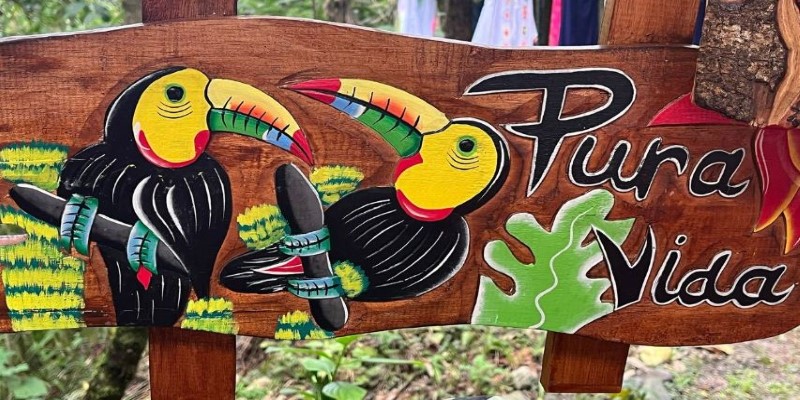Costa Rica is a top retirement destination due to its beautiful landscapes, friendly communities, and affordable living. Its warm climate, stable government, and excellent healthcare make it a peaceful and fulfilling place to retire. Many retirees worldwide choose Costa Rica for these reasons, but planning is essential for a smooth transition.
Understanding financial needs, residency choices, and cultural adaptations is essential to ensuring your relocation is a success. This guide gives you the information you need to retire in Costa Rica successfully and enjoy a comfortable retirement in this Central American haven.
Understanding the Appeal of Costa Rica for Retirees
Costa Rica has emerged as a retirement hot spot because of its combination of natural beauty, reasonable cost of living, and friendly environment. Many retirees envision relaxing on a beach, enjoying nature, and living in a peaceful community—and Costa Rica offers all of that. The country's "Pura Vida" philosophy promotes a simple, joyful lifestyle, making it an attractive choice for expats.
The cost of living in Costa Rica is much less than in the United States or Europe, enabling retirees to afford a comfortable lifestyle on a modest budget. Renting or owning a home, your dollar goes further here. Also, Costa Rica has high-quality, reasonable medical care, which many expats mention as one of Costa Rica's greatest pluses.
Another significant attraction is the nation's breathtaking landscapes. From unspoiled beaches and rainforests to huge volcanoes, Costa Rica's wide-ranging environment provides ample avenues for hiking, bird-watching, or enjoying a relaxing ocean view. It's the ideal locale for an idyllic and rewarding retirement.
Navigating Residency Options for Retirees
Managing residency opportunities is an essential process when planning to retire in Costa Rica. There are a variety of routes for retirees in the country, all with various requirements and advantages. The most popular one is the Pensionado Program, which is for individuals who want to retire in Costa Rica for good. In order to qualify, you need to demonstrate a monthly income of at least $1,000 from a retirement or pension fund. This is a relatively low requirement in comparison to other nations, making it an easy option for a lot of retirees. After fulfilling the financial criteria, you can apply for residency, and after approval, you will be issued a residency card, enabling you to remain in the country forever.

For those without a pension or those seeking more flexibility, the Rentista Program offers an alternative. This option requires proof of a monthly income of at least $2,500 from a consistent source, such as investments or other income streams. While this program allows you to live in Costa Rica without a pension, the higher income requirement makes it more challenging to qualify.
Alternatively, you can apply for temporary residency, which allows you to stay for up to two years. After this period, you can apply for permanent residency. Temporary residency is a good option if you're unsure about making Costa Rica your permanent home but want to experience life in the country before committing to it in the long term.
Financial Planning for Your Costa Rica Retirement
Financial planning is essential when retiring in Costa Rica to ensure a smooth and stress-free transition. Although Costa Rica is often more affordable than North America or Europe, understanding your budget is key to a comfortable retirement. The cost of living varies depending on location. For instance, San José, the capital, can be more expensive than smaller towns or rural areas. On average, a retired couple can live comfortably in Costa Rica for between $1,500 and $2,500 per month, which covers housing, food, transportation, and healthcare. However, your actual costs may vary based on your lifestyle and preferences.
Be mindful of currency exchange rates, as the Costa Rican colón fluctuates against the US dollar. While many businesses accept US dollars, it's important to understand how the exchange might affect your spending. Opening a local bank account can help manage your finances, and some banks even offer services specifically for expats.
Health insurance is another crucial aspect to consider. While Costa Rica's healthcare system is affordable and of good quality, many expats choose private insurance to supplement their coverage. Private plans offer better access to specialized care and private healthcare facilities. Be sure to research the best insurance options before making your decision, ensuring comprehensive coverage for your healthcare needs.
Adapting to Life in Costa Rica
Adapting to life in Costa Rica is a rewarding part of retiring there. The country’s warm hospitality and welcoming culture will make you feel at home quickly. One of the first steps to settling in is learning some basic Spanish. While English is spoken in many expat communities and tourist areas, knowing Spanish will allow you to communicate better with locals and integrate more fully into the community. Many expats take Spanish lessons to improve their language skills, which helps build deeper relationships and enriches the experience.

Costa Rica offers a slower, more relaxed pace of life, which may require an adjustment if you're used to a fast-paced environment. Embracing the “Pura Vida” lifestyle, which focuses on enjoying life’s simple pleasures and taking things at a more leisurely pace, is part of the charm of living in Costa Rica.
Another adjustment is the climate. Costa Rica has a tropical climate with a wet and dry season, and the weather can be hot and humid, especially if you're coming from a colder region. It's essential to stay hydrated and wear breathable clothing to stay comfortable. As you settle into your new life, you'll quickly get accustomed to these changes and enjoy the peaceful and fulfilling lifestyle that Costa Rica offers.
Conclusion
Retiring in Costa Rica offers an affordable, peaceful, and rewarding lifestyle. With its stunning landscapes, friendly locals, and affordable healthcare, it's a top choice for many expats. Proper financial planning, understanding residency options, and adapting to the local culture will ensure a smooth transition. Embracing the "Pura Vida" attitude, you'll enjoy a relaxed and fulfilling retirement surrounded by natural beauty and a welcoming community. Costa Rica truly offers a dream retirement destination for those ready for change.












